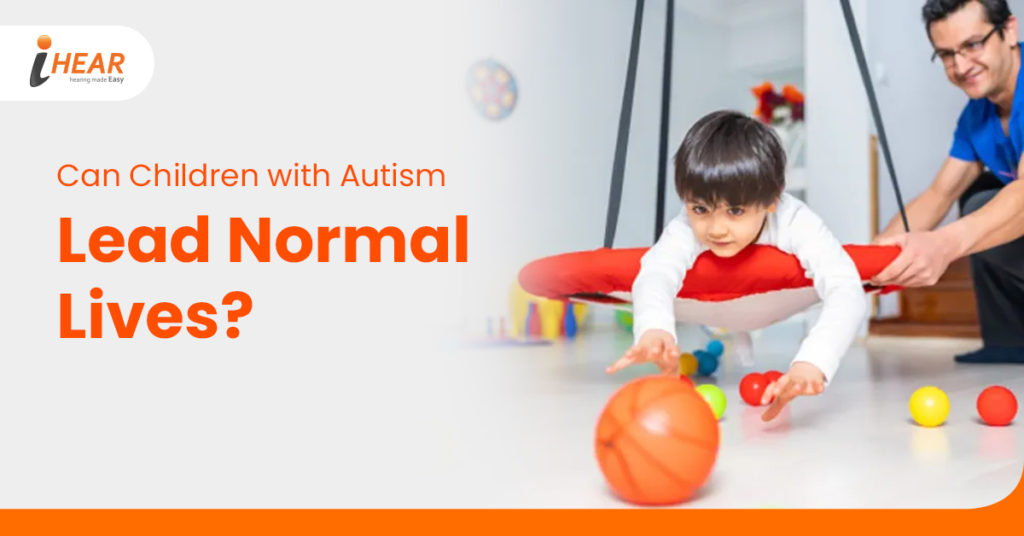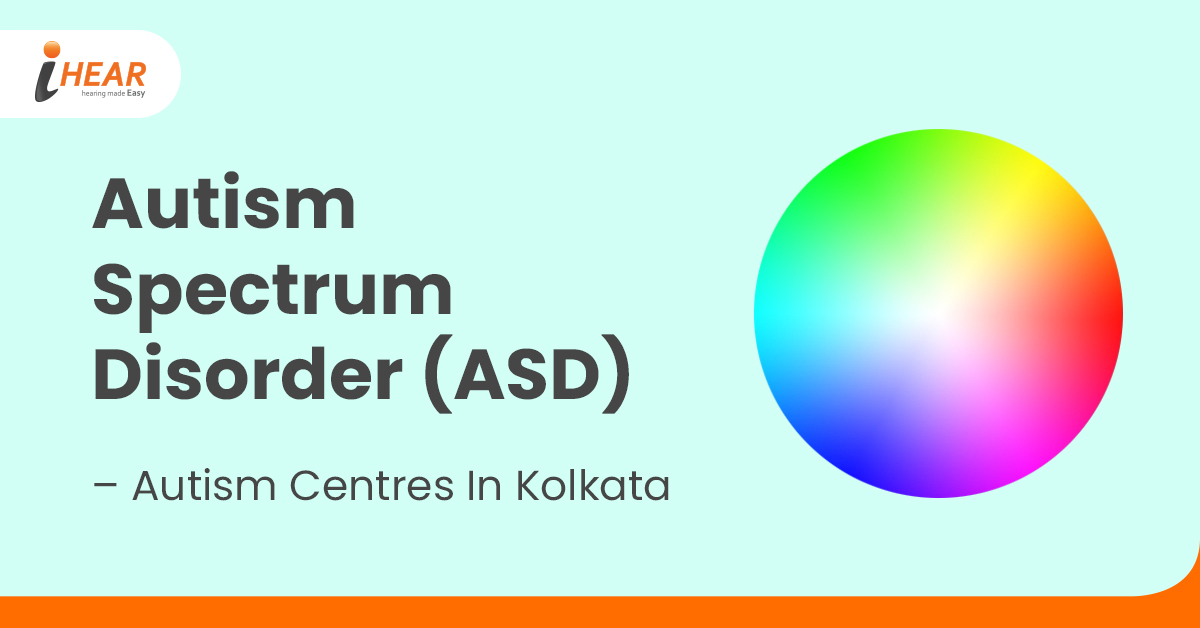Autism Spectrum Disorder (ASD) – Autism Centres In Kolkata
Autism Spectrum Disorder (ASD) is a developmental disorder characterized by differences in social interaction, communication, and behavior. It is called a “spectrum” disorder because it encompasses a wide range of symptoms and levels of impairment. Here is an overview of key aspects related to ASD:
Characteristics
- Social Communication Challenges:
- Difficulty understanding and using verbal and non-verbal communication (e.g., eye contact, facial expressions).
- Challenges in forming and maintaining relationships.
- Limited understanding of social norms and cues.
- Repetitive Behaviors and Restricted Interests:
- Repetitive movements (e.g., hand-flapping, rocking).
- Insistence on sameness and routines.
- Intense focus on specific interests or topics.
- Sensory Sensitivities:
- Over- or under-sensitivity to sensory input (e.g., sounds, lights, textures).
- Unusual responses to sensory experiences.
Diagnosis
- Screening: Early detection often involves screening tools such as the Modified Checklist for Autism in Toddlers (M-CHAT).
- Comprehensive Evaluation: A multidisciplinary team conducts a detailed assessment, including developmental history, observations, and standardized tests.
- DSM-5 Criteria: The Diagnostic and Statistical Manual of Mental Disorders, Fifth Edition (DSM-5), outlines specific criteria for diagnosing ASD.
Causes
- Genetic Factors: Genetics play a significant role, with multiple genes implicated in the development of ASD.
- Environmental Factors: Prenatal and perinatal factors, such as advanced parental age and low birth weight, may contribute.
- Neurological Factors: Differences in brain structure and function have been observed in individuals with ASD.
Treatment and Interventions
- Behavioral Interventions: Applied Behavior Analysis (ABA) is a common approach that uses reinforcement strategies to improve social, communication, and learning skills.
- Speech and Language Therapy: Helps improve communication abilities.
- Occupational Therapy: Addresses sensory and motor skills to enhance daily functioning.
- Educational Supports: Individualized Education Programs (IEPs) and specialized teaching strategies in schools.
- Medication: Used to manage co-occurring conditions like anxiety, ADHD, or seizures, rather than ASD itself.
Support and Resources
- Family Support: Education, support groups, and respite care for families.
- Community Resources: Access to social skills groups, recreational programs, and vocational training.
- Advocacy: Organizations like Autism Speaks and the Autism Society provide resources, support, and advocacy for individuals with ASD and their families.
Prognosis
- Varied Outcomes: Outcomes vary widely depending on the individual’s abilities and the presence of supportive interventions.
- Early Intervention: Early diagnosis and intervention are crucial for improving long-term outcomes.
Symptoms of Autism:
If a child develops Autism he or she would start showing the symptoms right from the infancy days. Some of the common symptoms associated with Autism are as follows:
- Not responding when their name is called.
- Resisting affectionate gestures like hugging, cuddling, and holding.
- Repetition of words or sentences
- Appearing absorbed in their world and preferring to play alone.
- Lacking facial expressions and avoiding eye contact with others.
- Experiencing delayed speech development or no speech at all, and forgetting previously learned words or sentences.
- Unable to start any conversation but only make requests or label things.
- No expression of emotions.
- Unable to understand simple instructions and questions.
- Passive, disruptive, or aggressive behavior during social interaction.
- Difficulty in recognizing non-verbal communication such as body postures, facial expressions, and more.
What are the various treatments for Autism?
Early intervention can significantly improve the condition of an autistic child. Child and Adolescent Mental Health Services offer some of the most effective autism treatment methods available. Our team of psychiatrists and psychologists has developed a comprehensive and effective treatment package tailored for autistic children.
Here are the therapies for autism that are included in the package:
- Behavioral Management Therapy: Uses therapeutic methods to reinforce positive behaviors and lessen unwanted ones.
- Cognitive behavior therapy: Focuses on the connection between feelings and thoughts with actions. Improves the behavior of the child.
- Social skills Training: Teaches children about social interaction and societal behavior.
Along with these, we also provide other treatments as well such as:
- Educational Therapies
- Medication Treatment
- Physical Therapy
- Nutritional Therapy
- Speech-Language therapy
- Parent-mediated therapy
At ihear.in one of the leading Autism Centres in Kolkata offering top-notch Autism Treatment. Our team comprises some of the best psychiatrists and psychologists from Kolkata, highly skilled in the treatment of Autistic children. Alongside our medical experts, we have a dedicated team of experienced caretakers trained specifically in handling autistic children.
At our center, we provide a serene and specialized space tailored to ensure the comfort and relaxation of autistic children during their treatment journey. Our services extend beyond mere medical assistance; we prioritize holistic care to promote overall well-being.
Furthermore, our Autism Treatment Kolkata services are offered at a nominal price, ensuring accessibility for all. If you’re seeking expert care for your loved one, reach out to us via our contact page. We’re committed to providing comprehensive support and prompt assistance.


